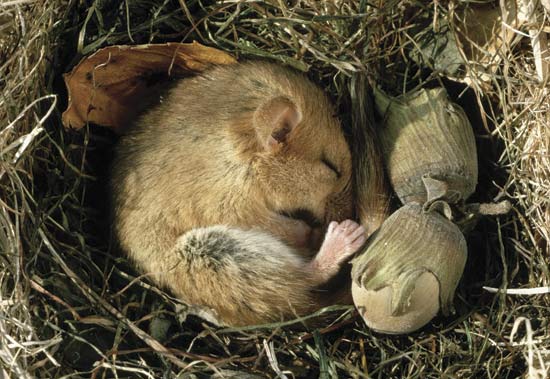''Mini-hibernation'' crucial to mammals'' winter survival too
 London, Jan 6 : A dormant state called torpor could be as important in helping small mammals to survive cold winters as hibernation.
London, Jan 6 : A dormant state called torpor could be as important in helping small mammals to survive cold winters as hibernation.
Zoologists Gerhard Kortner and Fritz Geiser from the University of New England in Armidale came to this conclusion after studying the behaviour of the stripe-faced dunnart
(Sminthopsis macroura) in its natural habitat in the Astrebla Downs National Park in Queensland, Australia.
Their finding attains significance as they have for the first time studied torpor, a last-ditch energy-conservation technique, in any animal in the wild.
Lab experiments conducted in the past has suggested that some mammals could reduce their energy use by more than 90 percent with hibernation, and 30 percent with daily torpor.
However, the new study shows that even torpor allows animals to reduce their energy expenditure up to 90 percent.
Torpor is a state somewhere between sleep and full-blown hibernation in which the animals'' body temperature drops significantly.
The "thorough and impressive" study shows that "what we''re seeing in the lab underestimates significantly what we''re seeing in the wild", Nature quoted biologist James Staples, from the University of Western Ontario in London, Canada, as saying.
After packing as much food as he could into his truck, Kortner spent two 4-week periods observing the dunnarts during the Australian winter, with its 36 ºC days and near-freezing nights.
He attached lightweight body temperature monitors with radio transmitters to eight wild dunnarts to track their use of torpor.
The researchers found that unlike lab experiments, the dunnarts in Astrebla entered torpor almost every night - only one dunnart failed to enter torpor and only on one night.
Importantly, they found that the length and depth of the nap depended on the air temperature - animals were torpid for longest, and had the lowest body temperatures, on the coldest nights.
Overall, their torpor averaged around 11 hours per day in the wild, twice the average seen in the lab.
The researcher calculate that the dunnarts could reduce their energy expenditure by up to 90 percent by using daily torpor, matching the benefit that other mammals get from hibernation.
"It''s not an emergency behaviour at all. It''s very important for the survival of these animals," said Kortner.
The study has been reported in Naturwissenschaften. (ANI)